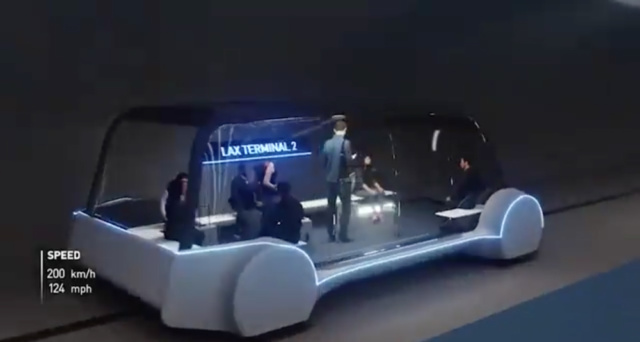
The Boring Company, Elon Musk’s Hyperloop tunnel-digging side company, may have a new mission after Musk claimed that he would be shifting towards expanding mass transit. Although research into digging a traffic-bypassing “urban loop” under Los Angeles will continue, Musk tweeted that instead of moving cars and personal pods, the Hyperloop network would focus on moving 150-mile-per-hour buses before anything else.
The Hyperloop system has been proposed–though nothing has been built yet–as an underground transit network where small levitating pods would be accelerated up to hundreds of miles an hour through a vacuum to eliminate air resistance. Where the Hyperloop differs from high-speed rail is that Musk has proposed scattering Hyperloop entrances along connecting cities more akin to subway stops rather than train halls, and that it was more for “personal transit”.
In a string of tweets last Friday, Musk appeared to change his tune, saying that, “Adjusting The Boring Company plan: all tunnels & Hyperloop will prioritize pedestrians & cyclists over cars.” He then explained that the tunnels “will still transport cars, but only after all personalized mass transit needs are met. It’s a matter of courtesy & fairness. If someone can’t afford a car, they should go first.” Musk also released a new video of the theoretical system in action, showing a bus-sized transit pod descending into a tunnel and reaching speeds up to 150 miles per hour.
Better video coming soon, but it would look a bit like this: pic.twitter.com/C0iJPi8b4U
— Elon Musk (@elonmusk) March 9, 2018
The move is a surprising one from Musk, who has publicly railed against mass transportation in the past. “It’s a pain in the ass,” Musk told the audience at a Tesla event in Long Beach, California last year. “That’s why everyone doesn’t like it. And there’s like a bunch of random strangers, one of who might be a serial killer, OK, great. And so that’s why people like individualized transport, that goes where you want, when you want.” It may also be a response to the extreme backlash the tech mogul received from transit planners and advocates afterwards, many of whom he got down in the dirt with and called “idiots”.
While Musk’s fans applauded the decision, skeptics pointed out that repositioning the Hyperloop’s mission towards public transit garners the company good will from the municipalities that The Boring company needs permission from for the Hyperloop. Though Musk has promised that the D.C.-New York Hyperloop route would follow a similar model, actual construction on any network is years away, even if the project can gain the local and federal approvals needed.
